Turks and Caicos Weather & Climate
The “Hot” and “Cool” Seasons
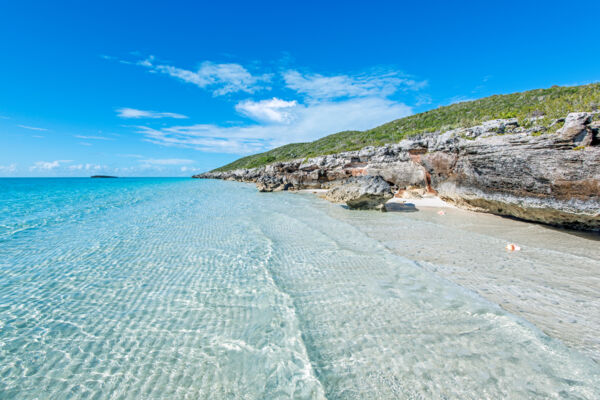
The Turks and Caicos Islands generally experience pleasant and consistent weather throughout the year.
Compared to northern countries such as the United States, Canada, and the United Kingdom, there’s far less of a distinction in seasons here.
May to October is considered the “hot” months, and November to April are the “cool” months. Although the average monthly variation between the “hot” and “cool” months is only about 10° F (5° C), this difference is definitely noticeable. Depending on personal preference, some may find that activities such as cycling, hiking, and exploring historical sites may be a bit too exhausting during the height of summer.
The winter “cool season” months tend to see a greater number of tourist arrivals.
Excepting the occasional passing of a storm, the weather and conditions for activities on and in the water are typically excellent throughout the year.
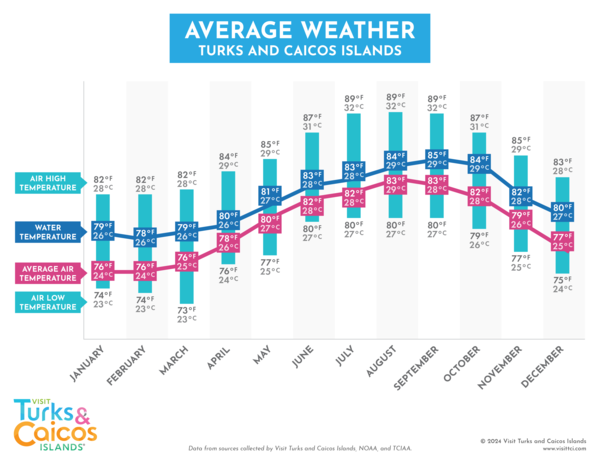
Average Temperature
The average temperature in the Turks and Caicos is 81° F (27° C). The average range is 75° to 95° F (24° to 35° C).
Water Temperature
The average surface water temperature of the ocean surrounding the Turks and Caicos Islands fluctuates less than the air temperature. Water temperature ranges from a low of 78° F (26° C) in the winter to a warm high of 85° F (29° C) in the summer. The seawater temperature of areas and beaches with shallow water, such as Sapodilla Bay or Taylor Bay, can be several degrees warmer than coastal beaches that are more exposed to the open ocean.
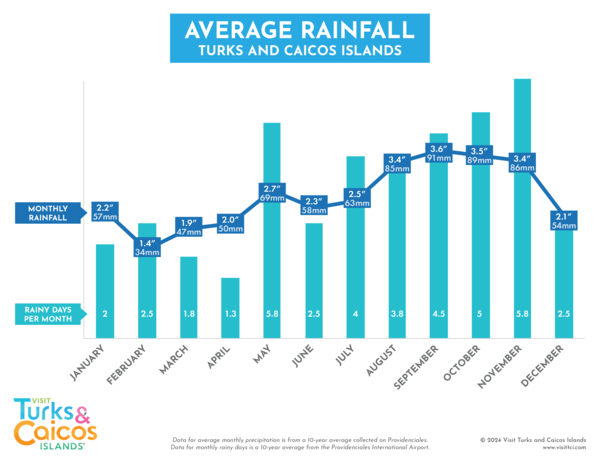
Rainfall
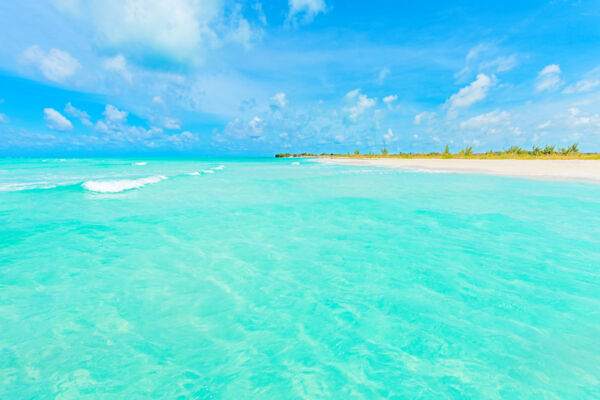
The average annual precipitation in the Turks and Caicos is 33 inches (84 cm). This is one of the lowest rainfall averages in the Caribbean.
There is generally little rainfall throughout the year, and even a drizzle is unlikely during the average visit. It’s commonly said that there are 350 days of sunshine throughout the year, and that’s a surprisingly accurate statement. April to July tends to have the greatest number of showers, but the majority of water comes down at a few individual times during the June to November hurricane season.
Sun and Cloudy Days
Be advised that the sun is extremely intense, and it’s common for days to have a UV Index of 12. This means that a sunburn is likely in just 15 minutes of unprotected exposure.
Cloudy days can be a bit misleading, as the majority of UV rays can still shine through and cause sunburn.
Beaches
For those enjoying the beach, take precautions to avoid sunburn. The cooling effect of the water and breeze will likely delay the effects of overexposure to the sun, resulting in painful sunburns which become evident a few hours later.
Flooding and Heavy Rains
Floods and heavy rains occur almost exclusively during the hurricane season. The Turks and Caicos typically sees one to two of these torrential downpours annually, and some flooding of roads can be expected. The flood water usually subsides within a few days.
Mosquitoes
The Turks and Caicos can have mosquito problems at certain times and in certain areas. Heavy rains (typically once or twice per year) are the primary determining factor of mosquito density.
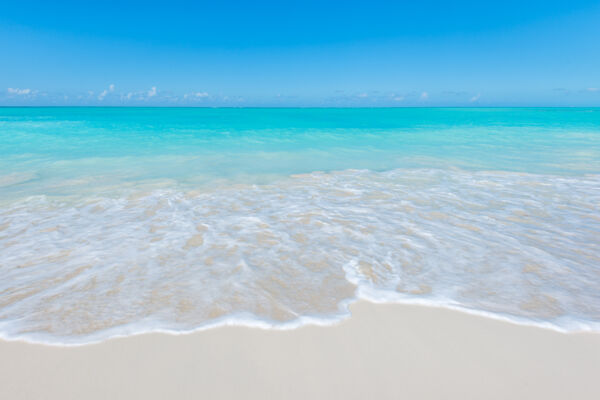
The islands in the Turks and Caicos are affected to different degrees.
For most of the year, Providenciales does not have any problem. After one of the heavy rains, mosquitoes can be a nuisance for about three weeks.
North Caicos, Middle Caicos, Parrot Cay, and Pine Cay tend to have the most serious insect problems. After heavy rain, mosquitoes and sand fleas can persist for weeks due to the larger number of natural freshwater ponds and caves.
Grand Turk, South Caicos, and Salt Cay have the least issues with the pests, but can still experience them a bit after rains.
If mosquitoes are bad, wearing long sleeves and using insect repellent will help but may not be completely effective. Areas exposed to the wind, typically the eastern coasts, tend to usually be free of mosquitoes. At night, staying in an air-conditioned room can greatly reduce the chance of bites.
Hurricane Season (June 1 to November 30)
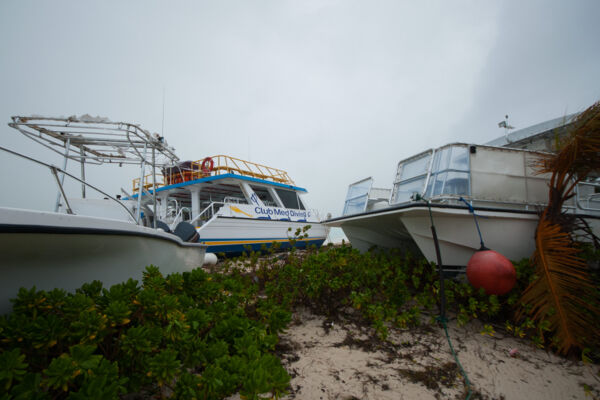
The Caribbean hurricane season is officially from June 1 to November 30. However, the majority of hurricanes that have hit the Turks and Caicos have occurred between the end of August and mid-September. Hurricane Ike hit on September 6 2008, Hurricane Hanna on September 1 2008, Hurricane Donna on September 7 1960, and Hurricane Frances on September 1 2004. Hurricane Kate (November 18 1985) was a major exception.
While it is rare for a serious hurricane to hit the Turks and Caicos Islands, it is much more common for flights to be rescheduled due to the threat of one.
To avoid your holiday being ruined by a hurricane (or more likely, the chance of one), you may want to avoid visiting between August 31 and September 15.









